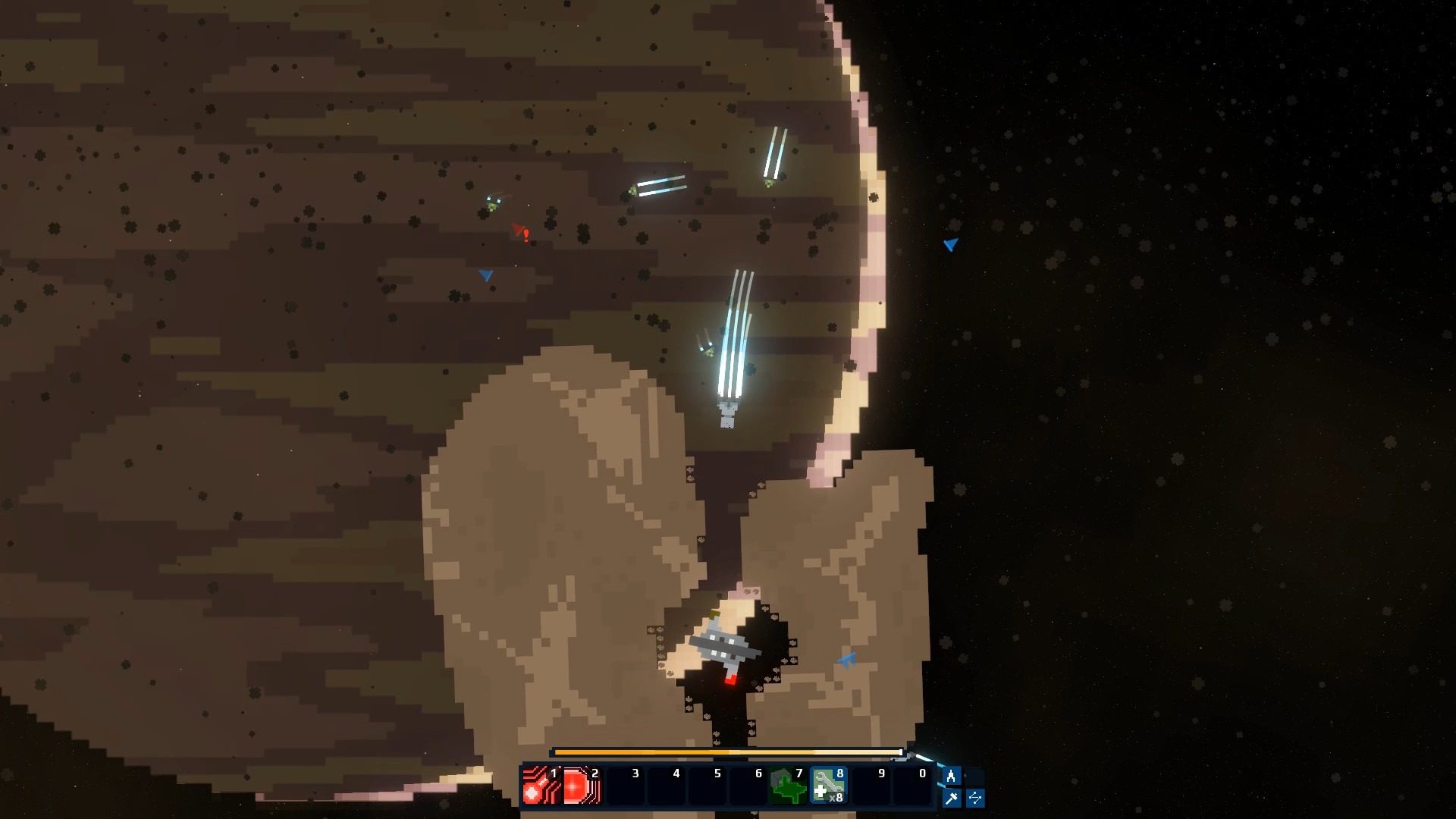
Welcome to the Space Game Junkie Podcast. This time Jim and I bring on friend of the show Nate (Iridium884 on various forums) to talk about what we’re looking forward to in 2014, as well as some predictions! Are we on the nose, or are we full of bull? YOU DECIDE! ;)
Podcast: Play in new window | Download (Duration: 1:32:40 — 27.4MB)
Subscribe: Apple Podcasts | Android | RSS | More
What do you guys think of our choices and our predictions? We’d love to hear your thoughts and your own predictions in the comments. ;) Thanks for listening! :)
PS. Also, if you’re the person who clicks “Dislike” on every podcast, could you contact me and tell me why? ;)
Episode #45 Show Notes
Games Coming Out in 2014 (That We Know Of)
- AI War Expansion 6 (as yet unnamed)
- Buzz Aldrin’s Space Program Manager
- Deep Space Settlement
- Distant Worlds: Universe
- Elite: Dangerous
- Enemy Starfighter
- Eterium
- Galactic Civilizations III
- Horizon
- Last Federation
- Limit Theory
- M.O.R.E.
- Predestination
- PULSAR: Lost Colony
- SpaceBase DF-9
- StarDrive Unity
- Starlight Inception
- Star Lords
- Star Ruler 2
- Star Villains and Space Heroes
- Star Wars: Attack Squadrons
- Void Destroyer




The SteamBox is a full PC. You don’t have to put SteamOS on it; you could run stock Windows on it and use it for word processing if you want.
The point of SteamOS is this:
Valve is worried that Microsoft is taking Windows the same direction Apple is taking iOS and (to a lesser extent) OSX; there is no place for Steam in a world where you buy all your software from the App Store. What I think Valve is really worried about is that Apple decides to make the AppleTV an iOS-based game machine, the game consoles are swamped out and killed, Microsoft makes Windows 9 refuse to install software except through the Microsoft App Store, and that’s the ballgame.
I feel like I should expand on my previous comment; I think Valve is playing a long game here. I don’t think they expect SteamOS, the Steam Machines, or any of their controllers to be a big hit this year or next. I don’t think they’re about “winning this generation of the console wars for the PC” or anything like that. SteamOS and its surrounding hardware are (I believe, based partly on Valve’s past behaviour and partly on things Gabe Newell has said over the past year or so) about building a fastness for PC gaming; a fortress around which the PC game industry can rally if everything goes sour (ie: if Windows entirely ceases to be relevant or becomes totally locked down, and Apple continues to keep iOS locked down and continues to migrate OSX towards iOS-style walled gardendom).
I assume it’s partly a defensive move and partly an offensive move; building up a defense, but also putting markers on the board to let all the players know what actions will make Valve a friend or an enemy.
There’s a talk Gabe gave back in… January last year, I think? It’s *fascinating*, because he lays it all out, or at least as much of their strategy and reasoning as he was comfortable discussing in public. He talks about things like network effects, and the positive financial benefits for everyone (developers *and* players) when players can get into the loop. He talks about things like letting you curate your own Steam store (back-ending onto Steam) where you get to decide what games are approved for your personal store, including games that aren’t approved for Steam. If someone buys something, you get a cut (because they bought it through your curated store), Steam gets a cut, and the developer gets paid.
The implications of that are staggering. Imagine, for instance, the Space Game Junkie Game Store, back-ended onto Steam, except it has just space games with detailed reviews. If some of the games aren’t approved by Steam, it doesn’t matter; it just means those games aren’t available through the actual Steam client; they still get distributed by the Steam back-end, and Steam still handles all the financial hassle. And if some game that isn’t Steam approved is doing good numbers, chances are it’ll get official Steam approval shortly; Valve will be able to see what’s selling well at the subsidiary stores.
So, Valve wins because they outsource their approvals process and basically have boutique franchise Steam stores all over the internet generating money for them. Developers win because the approval process becomes much simpler, they can circumvent the whole approval problem by having their own “our stuff” Steam store on their web pages, and their games are potentially available in more places. Places like Space Game Junkie win because they can have a Steam franchise that lets them curate a list of games they like *and* get a cut of sales.
That’s just one of the things Gabe talked about. The core of it, though, was that all sorts of interesting and wonderful things cease to be possible if everything moves to iOS-style locked down computing and app sales.
Valve is playing a long game. They may have some tactical concerns about the next quarter or the next year, but they’re thinking strategically. We’re seeing the opening shots of a campaign that may take a decade or more to play out.
A few people have pointed it out before, but Steam itself wasn’t all that interesting a decade ago when it was new; as far as anyone could tell, it was a DRM system with dubious benefits, and the only reason anyone tolerated it was because of Half Life. A lot of people assumed it would be Valve’s little BS dongle we’d have to put up with when we installed Valve games and would otherwise ignore. And now?
I don’t think Steam has necessarily followed the path that Valve planned for it; I think there’s been perhaps more exploitation of good luck than things going to plan. But Valve shows the signs of a good strategist even in that; make long term plans, do what you have to in the short term but work towards the long term plan foremost, and exploit every lucky break that comes within reach.
I don’t know if they’ll achieve what I think they are trying to; Apple has a lot of money and has sold a lot of people on the idea of siloed “safe” appliance computing where you can only buy stuff from one source and no to programs can interact, and the game console industry has historically operated in more or less the same way. Locked-down systems with heavyweight DRM beat open systems back in the late 80s and early 90s when the game console boom saw the end of the “home computer”. It’s very easy to envision a future where your iOS-based AppleTV is your game machine, you buy everything from the App Store, the console makers retreat to Japan or simply get out of the industry entirely, and both Windows and OSX have embraced the iOS “you can only install software from the App Store, and everything is sandboxed and siloed, and your position in all this is to be a consumer” model.
I hope Valve can keep the PC game industry vibrant. I don’t like the look of where we’re headed otherwise.
Great podcast guys. Lots of fun and some good insights. 2014 WILL be a great space game junkie year
Brian you NEED to see Johnny Mnemonic. Stat. Cyberpunk goodness that is silly and fun and engaging all at once. Dina Meyer at her best. Udo Keir at his creepiest. Ice T is hilarious in his seriousness. Its worth watching for the ‘Keanu tantrum scene’ in the garbage alone. Plus its got Rollins as a doctor, Dolf Lundgren as a techno cyber/priest/assassin, and it also boasts an uber-fake militarized dolphin. Whats not to love?!
What are you doing still reading this….Go watch Johnny now!
Buzz Aldrin’s Race Into Space is free and cross-platform: https://www.raceintospace.org/
Welcome to the comments, captain, and thanks for the link!!111
FWIW: https://arstechnica.com/apple/2014/01/report-apple-tv-successor-with-revamped-os-coming-in-first-half-of-2014/
It could be the beginning of an Apple play to conquer the game console market. Or not. Or it might just be a false rumor.
But if it is basically the Ouya as built and backed by Apple…
I get some weird behavior when I try to reply to things. The web browser complains about cross-site scripting attacks and redirects.